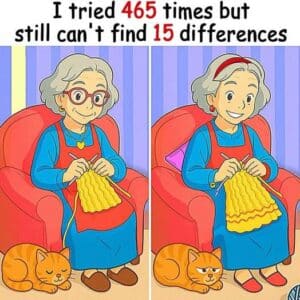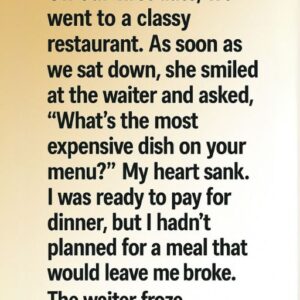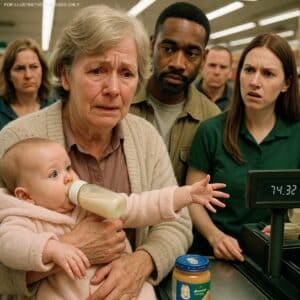When I took the new cleaning contract, I didn’t think much of it. It was just another luxury client for my growing company—until I saw the name. Diane. My aunt. The woman who stole everything from me twenty years ago and disappeared without a trace.
When I was three, my parents died in a car crash. Everything they owned—their house, savings, and life insurance—was left in my name. My aunt Diane showed up at the funeral dressed in pearls and pity, promising everyone she’d take care of me. For a while, she did. She moved into my parents’ home, redecorated everything, and called herself my “only family.”
Then, one morning, she took all the money, sold the house, and dropped me off at a foster home. No goodbye. No explanation. Just gone.
I grew up believing I was unlovable. By sixteen, I was cleaning houses after school. By eighteen, I was scrubbing office floors at night. By twenty-three, I had started my own cleaning business—PureSpace Services. Six employees, two vans, and a reputation for flawless work. I built my life from what she destroyed.
It had been years since I thought of Diane—until that morning in my office. I was scrolling through new client requests when her name popped up. “3,500 sq. ft. property. Weekly maintenance. Cash payment. Owner requires discretion.” And there it was—Diane’s full name, along with an address not far from where my parents’ house once stood.
I could’ve declined. I should have. But something inside me refused to let the past stay buried. I typed back before I could talk myself out of it: “Accepted. I’ll handle this personally.”
Three days later, I parked in front of a grand colonial house. When the door opened, there she was—pearls, perfume, and the same cold eyes. “Yes?” she asked curtly.
“Good morning, ma’am,” I said evenly. “I’m from PureSpace Cleaning.”
She looked me over, unimpressed. “Well, I hope you’re better than the last girl. Come in.”
The house was spotless but soulless—every corner gleaming, every surface polished. Still, it felt empty. “Start upstairs,” she ordered. “And don’t touch my jewelry box.”
Week after week, I returned. She never recognized me. Never thanked me. But she loved to talk—mostly about herself. Charity events, luncheons, the mayor’s wife. Every conversation was another brick in the wall of her vanity.
Then one afternoon, as I dusted behind her vanity, she sighed dramatically. “I had a niece once,” she said. “My sister’s daughter. Poor thing. I tried to raise her, but she was impossible. Ungrateful. Some people just don’t appreciate sacrifice.”
I kept my face blank. “That must’ve been hard,” I murmured.
“It was,” she said, swirling her wine. “She disappeared, thank God.”
Each visit made it harder to keep calm. Every word out of her mouth was another lie layered over my childhood. But I waited. Patiently.
A week later, she was preparing for a big luncheon—her “charity” event. As I cleaned, I overheard her bragging to guests. “My husband and I worked hard for everything we have,” she said sweetly.
Then someone replied, “Oh, Diane, you always had a little help. Your sister’s insurance gave you quite the head start, didn’t it?”
The room went quiet. Diane laughed it off, but I felt something shift inside me.
The next week, I arrived early. She opened the door, scolding me for being late as usual. “By the way,” I said calmly, “I brought you something.”
Suspicion flickered in her eyes. “For me?”
“Yes, ma’am. Just a little surprise.”
When she came downstairs later, she stopped dead in her tracks. On her coffee table sat a framed photo: my parents and me, smiling in the sunlight.
Her hand trembled as she picked it up. “Where did you get this?”
“You tell me,” I said quietly.
“That’s my niece,” she stammered.
“Your sister’s daughter,” I said. “The one you abandoned.”
Her face went pale. “No… it can’t be.”
“It can,” I replied. “Because that little girl was me.”
The silence was heavy. Finally, she whispered, “Why are you here? What do you want?”
“To see the kind of woman you became,” I said. “And to show you the kind of woman I became despite you.”
She looked away, voice trembling. “You came to humiliate me.”
“No,” I said. “I came to remind you that you don’t get to rewrite the past.”
I picked up my cleaning bag. “For what it’s worth,” I added at the door, “I hope someday you learn to clean up your own messes.”
Two weeks later, her husband called me. “I don’t know what you said to her,” he said, “but I found everything—hidden accounts, fake charities, stolen insurance funds. She’s leaving. I filed for separation. Thank you.”
Months passed. Life moved on. Then one morning, my receptionist buzzed me. “There’s a Mrs. Diane here. No appointment. Says it’s urgent.”
When I walked into the lobby, Diane stood there—no pearls, no makeup, just gray and hollow.
“I came to apologize,” she said softly. “You didn’t deserve what I did. I ruined everything for money that never made me happy.”
“Why now?” I asked.
“I saw your name in the paper,” she said. “You donated to a foster shelter. You’re helping the children I never cared about. Your mother would be proud.”
I stared at her for a long moment. “Maybe she would,” I said quietly. “She’d want me to forgive you, too.”
“Do you?” she asked.
“I’m still learning.”
She nodded, tears in her eyes, and left without another word.
That afternoon, I sat at my desk, staring at the same photo I’d left on her table—the one of my parents and me. I realized that revenge had felt satisfying, but forgiveness… that was peace.
Because some messes aren’t cleaned with anger. They’re cleansed with grace.





